
The Foreign Intelligence Surveillance Act of 1978 is a United States federal law that establishes procedures for the physical and electronic surveillance and collection of "foreign intelligence information" between "foreign powers" and "agents of foreign powers" suspected of espionage or terrorism. The Act created the Foreign Intelligence Surveillance Court (FISC) to oversee requests for surveillance warrants by federal law enforcement and intelligence agencies. It has been repeatedly amended since the September 11 attacks.
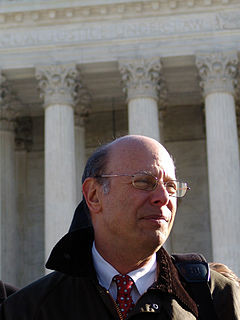
Michael Ratner was an American attorney. For much of his career, he was president of the Center for Constitutional Rights (CCR), a non-profit human rights litigation organization based in New York City, and president of the European Center for Constitutional and Human Rights (ECCHR) based in Berlin.
The state secrets privilege is an evidentiary rule created by United States legal precedent. Application of the privilege results in exclusion of evidence from a legal case based solely on affidavits submitted by the government stating that court proceedings might disclose sensitive information which might endanger national security. United States v. Reynolds, which involved alleged military secrets, was the first case that saw formal recognition of the privilege.
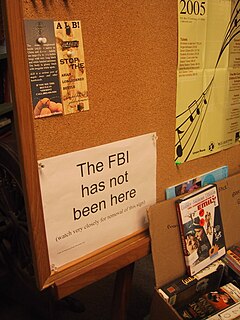
The following are controversial invocations of the USA PATRIOT Act. The stated purpose of the Act is to "deter and punish terrorist acts in the United States and around the world, to enhance law enforcement investigatory tools, and for other purposes." One criticism of the Act is that "other purposes" often includes the detection and prosecution of non-terrorist alleged future crimes.

NSA warrantless surveillance refers to the surveillance of persons within the United States, including United States citizens, during the collection of notionally foreign intelligence by the National Security Agency (NSA) as part of the Terrorist Surveillance Program. The NSA was authorized to monitor, without obtaining a FISA warrant, the phone calls, Internet activity, text messages and other communication involving any party believed by the NSA to be outside the U.S., even if the other end of the communication lay within the U.S.
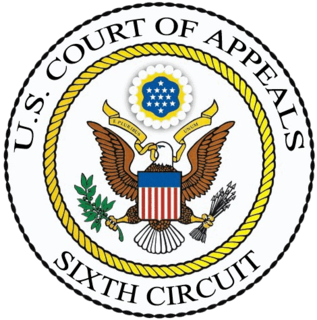
American Civil Liberties Union v. National Security Agency, 493 F.3d 644, is a case decided July 6, 2007, in which the United States Court of Appeals for the Sixth Circuit held that the plaintiffs in the case did not have standing to bring the suit against the National Security Agency (NSA), because they could not present evidence that they were the targets of the so-called "Terrorist Surveillance Program" (TSP).
The Center for Constitutional Rights (CCR) is a progressive non-profit legal advocacy organization based in New York City, New York, in the United States. It was founded in 1966 by Arthur Kinoy, William Kunstler and others particularly to support activists in implementation of civil rights legislation and achieve social justice.

The Terrorist Surveillance Program was an electronic surveillance program implemented by the National Security Agency (NSA) of the United States in the wake of the September 11, 2001, attacks. "The program, which enabled the United States to secretly track billions of phone calls made by millions of U.S. citizens over a period of decades, was a blueprint for the NSA surveillance that would come after it, with similarities too close to be coincidental". It was part of the President's Surveillance Program, which was in turn conducted under the overall umbrella of the War on Terrorism. The NSA, a signals intelligence agency, implemented the program to intercept al Qaeda communications overseas where at least one party is not a U.S. person. In 2005 The New York Times disclosed that technical glitches resulted in some of the intercepts including communications which were "purely domestic" in nature, igniting the NSA warrantless surveillance controversy. Later works, such as James Bamford's The Shadow Factory, describe how the nature of the domestic surveillance was much, much more widespread than initially disclosed. In a 2011 New Yorker article, former NSA employee Bill Binney said that his colleagues told him that the NSA had begun storing billing and phone records from "everyone in the country."
Gitanjali S. Gutierrez is an American lawyer. She is the lawyer for the defendant Mohammed al-Qahtani, who is held at Camp Delta in Guantanamo Bay by the United States Military. Gitanjali Gutierrez is an attorney with the Center for Constitutional Rights, a New York-based nonprofit organization.

Hepting v. AT&T is a United States class action lawsuit filed in January 2006 by the Electronic Frontier Foundation (EFF) against the telecommunications company AT&T, in which the EFF alleges that AT&T permitted and assisted the National Security Agency (NSA) in unlawfully monitoring the communications of the United States, including AT&T customers, businesses and third parties whose communications were routed through AT&T's network, as well as voice over IP telephone calls routed via the Internet.

MAINWAY is a database maintained by the United States' National Security Agency (NSA) containing metadata for hundreds of billions of telephone calls made through the four largest telephone carriers in the United States: AT&T, SBC, BellSouth and Verizon.
Warrantless searches are searches and seizures conducted without court-issued search warrants.

Wilner v. NSA, 592 F.3d 60, was a Freedom of Information Act lawsuit filed by Thomas Wilner and fifteen other lawyers who represented Guantanamo captives against the United States National Security Agency.
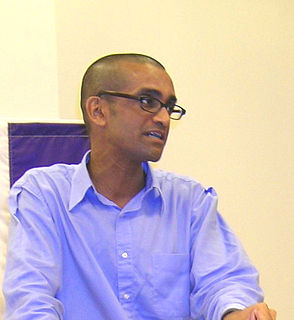
Shayana D. Kadidal is an American lawyer and writer. Kadidal has worked at the Center for Constitutional Rights in New York City since 2001, and is senior managing attorney of the Guantánamo Global Justice Initiative there, coordinating legal representation for the captives held in extrajudicial detention in the United States' Guantanamo Bay detention camps, in Cuba. Previously a writer on patent, drug and obscenity law, since 2001 he has played a role in various notable human rights cases, including:

Tina Monshipour Foster is an Iranian-American lawyer and director of the International Justice Network.
Ziglar v. Abbasi, 582 U.S. ___ (2017), is a Supreme Court of the United States case in which the Court determined, by a vote of 4-2, that unlawfully present aliens arrested in the immediate aftermath of the September 11 attacks cannot sue for money high level federal officials for the conditions of their confinement. The case was consolidated with Hastey v. Abbasi, and Ashcroft v. Abbasi. It was argued on January 18, 2017.
Thomas Tamm is a public defender in Washington County, Maryland. He formerly worked as an attorney in the United States Department of Justice (USDOJ) Office of Intelligence Policy and Review during 2004 when senior Justice officials responded to the warrantless NSA surveillance concerning eavesdropping on U.S. citizens. He was an anonymous whistleblower to The New York Times, making the initial disclosures which led to reporters winning Pulitzer Prizes in 2006. Although Maryland agreed to drop ethics charges against him in 2009 relating to those disclosures, and the USDOJ announced it had dropped its investigation in 2011, the D.C. Office of Bar Counsel announced in January 2016 that it had brought disciplinary charges against Tamm relating to those events. Despite some controversy with respect to politicisation of that office and similar charges being brought to silence attorney whistleblowers especially beginning in 2014, Tamm in March 2016 agreed to public censure by the District of Columbia Court of Appeals in order to allow him to proceed with his life and career.

Klayman v. Obama was an American federal court case concerning the legality of the bulk collection of both phone and Internet metadata by the United States.

Litigation over global surveillance has occurred in multiple jurisdictions since the global surveillance disclosures of 2013.
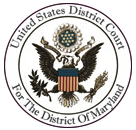
Wikimedia Foundation, et al. v. National Security Agency, et al. is a lawsuit filed by the American Civil Liberties Union (ACLU) on behalf of the Wikimedia Foundation and several other organizations against the National Security Agency (NSA), the United States Department of Justice (DOJ), and other named individuals, alleging mass surveillance of Wikipedia users carried out by the NSA. The suit claims the surveillance system, which NSA calls "Upstream", breaches the First Amendment to the United States Constitution, which protects freedom of speech, and the Fourth Amendment to the United States Constitution, which prohibits unreasonable searches and seizures.










